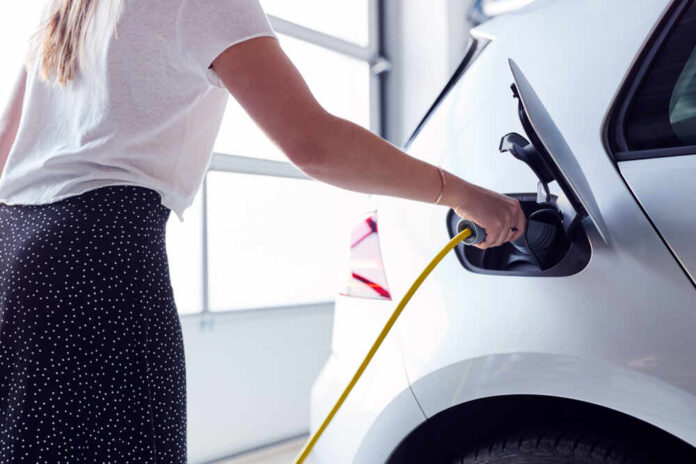
Electric vehicles owners beware! Storm surges from massive hurricanes are not the only danger if your vehicle is the climate-friendly alternative promoted by the federal government. Saltwater combined with EV battery systems may lead to combustible and deadly aftereffects.
At least two Florida residents who owned Teslas discovered this fact for themselves last week after Hurricane Idalia rampaged through the region.
After their vehicles were submerged in seawater, they dried out only to catch fire and be completely destroyed. Thankfully no one was injured, but the incidents prompted officials to issue a strong warning.
The Palm Harbor Fire Rescue Department posted, “If you own a hybrid or electric vehicle that has come into contact with saltwater due to recent flooding within the last 24 hours it is crucial to relocate your vehicle from your garage without delay.”
Officials added that exposure to seawater may cause fires in lithium-ion batteries.
Just like after Hurricane Ian last year when several Teslas exposed to flood waters caught fire, Teslas exposed to Hurricane Idalia’s flood waters are now catching fire 🔥 $TSLA and all EVs need better battery sealing against water — salt water is especially potent. pic.twitter.com/wIXjL5MiyQ
— Facts Chaser 🌎 🐶 🤦🏻♂️ (@Factschaser) September 2, 2023
One of the Teslas destroyed by fire was being towed away by fire crews when it became engulfed in flames. Tesla warns car owners to treat a vehicle that has been flooded as though it were in an accident and to contact their insurance company.
It also emphasizes to move them at least 50 feet from homes or other structures as well as vehicles and flammables.
Carfax spokesperson Patrick Olsen explained the danger begins when the floodwaters are gone and mineral deposits dry on the EV batteries. This creates “bridges” between battery cells and may lead to fires days or even weeks later.
The ensuing blaze, he said, is very difficult to extinguish with an EV.
Olsen reported hearing from EV owners who believe they may drive their vehicles in deep water because they don’t have an engine that can be flooded. He emphasized, “That’s not the case.”
Not only is that danger present in electric vehicles, but also electric golf carts, scooters and bicycles that feature lithium-ion batteries.
These battery packs are constructed with groups of cells in compartments containing a flammable liquid electrolyte. CBS News Innovation Lab reported that EVs and plug-in hybrid vehicles have roughly 1,000 times more cells than e-bikes, putting them at a much higher risk.





























